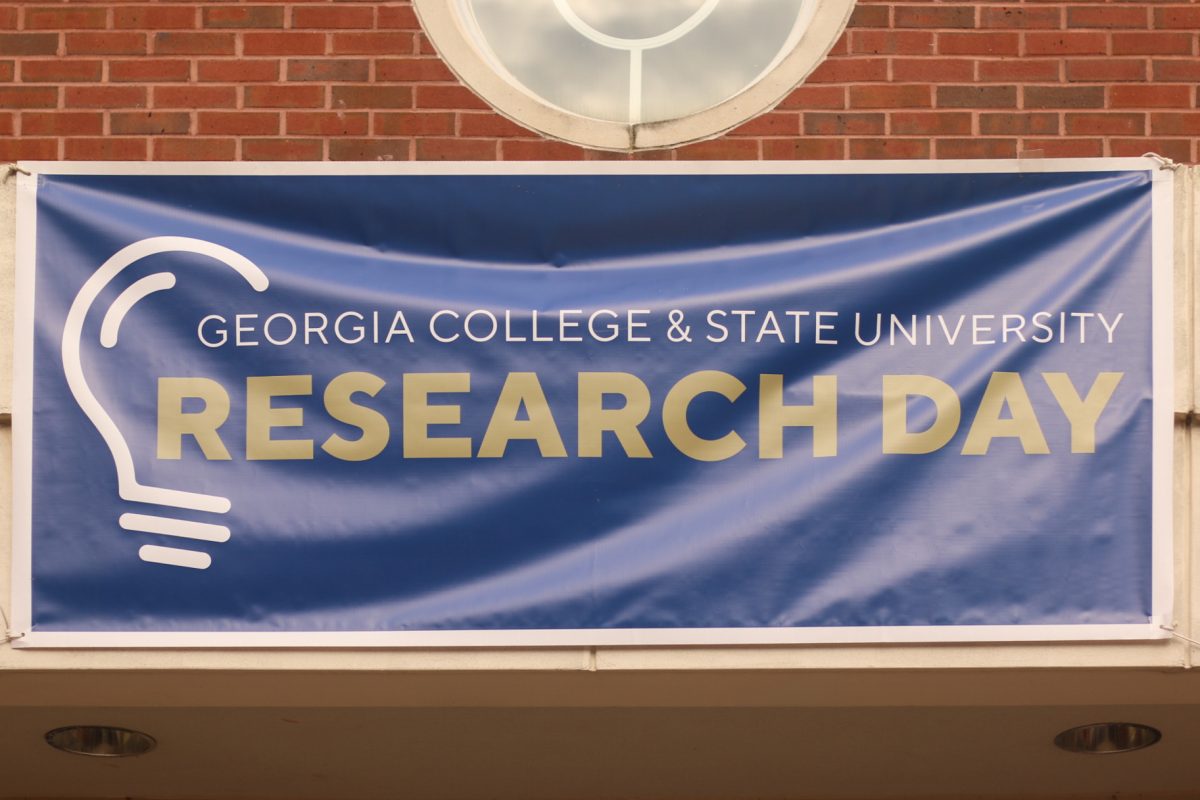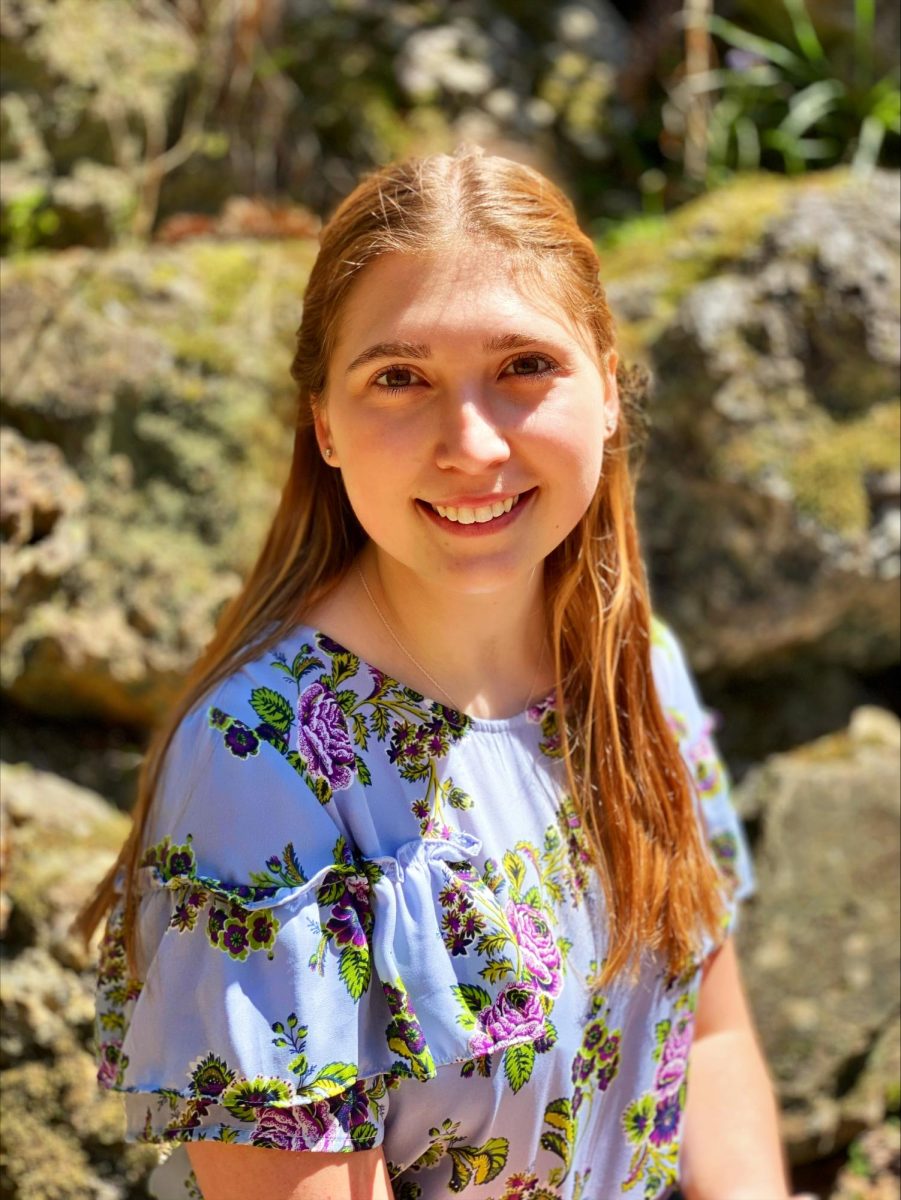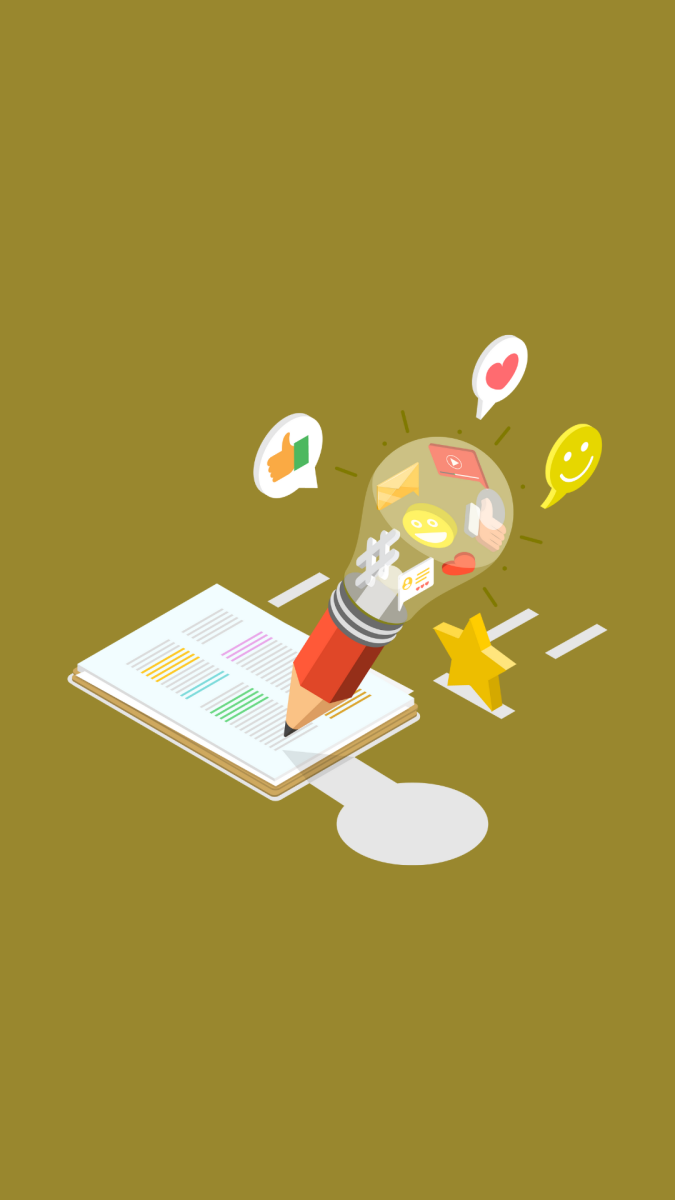Hosted campus-wide, Research Day is an annual event that showcases a variety of student research. Subjects from economics to geography and linguistics represent prominent academic diversity across GC.
Besides merely representing these subjects, GC celebrates them in creative ways. At Research Day, students are encouraged to lead and participate across many mediums, including student panels, oral presentations, art galleries, short films and more.
“Research Day is an annual campus-wide event that celebrates undergraduate and graduate students’ scholarship and creative endeavors,” said Christina Smith, the Research Day 2024 faculty director. “This is an important event for the university because our campus takes great pride in recognizing the successes of our students and faculty, and Research Day allows us to collectively celebrate those successes.”
Kathryn Cooper, a sophomore political science and philosophy major, was one of these research presenters. Her oral presentation, titled “Restrictive Educational Policy and Minority Enrollment in Higher Education,” explores the social effect of educative anti-CRT, or Critical Race Theory, policy across several states; the focus is on minority citizens deciding whether to enroll in anti-CRT public universities.
“This is genuinely very important to me; I think it should be important to anyone who’s in the educational system,” Cooper said. “It is affecting what I want to do and professors that I admire.”
Cooper’s presentation also demonstrates a key focus of Research Day: that research limited to STEM subjects is a fallacious construct and that, instead, a more effective methodology to conduct research incorporates all subjects, including humanities. Realistically, quantitative data within humanities-based research can even go beyond STEM research in some cases.
This was the case for sections of Cooper’s presentation. Besides organizing chronological data on minority attendance at public universities across the selected states, she developed a formula to remove outside variables, such as the COVID-19 pandemic, and even to craft a graphical projection of the data, making the data easily interpretable.
“This is unique among any other research projects that I’ve done because this is a quantitative research project using a simple analysis software called SPSS [Statistical Package for the Social Sciences],” Cooper said. “Getting quantitative results is a much more significant way to understand this problem than just saying, ‘I don’t like this because it is problematic.’”
Alongside incorporating quantitative measurements into humanities, Cooper also describes the possible emotional connection between researchers and their corresponding research. To her, research can resonate with students internally and provide a means of creative expression.
“Because I am a philosophy major, I worked with critical race theory before, and I consider it to be pretty critical to what I want to do in the future,” Cooper said. “Research is meant to be something that you’re passionate about.”
However, Cooper is not alone; many other presentations across Research Day exercise this introspective philosophy. During the series of rhetoric presentations across campus, many contained topics that were deeply touching to the presenter.
“Abolitionist Rhetoric and the Campaign Song in 1860,” a research presentation by Victoriyah Friend, explores the use of abolitionist campaign songs in the mid- to late 1800s. Through Friend’s description, these campaign songs were translated as a medium of unfiltered passion against the system of slavery as well as a form of love for Black communities living through the historical tragedies.
Nonetheless, both Friend and Cooper’s presentations exemplify the best expectations of Research Day: students all across the university, undergraduate and graduate students, presenting creative and intriguing research. This past Research Day was abundant in these aspects, and many are excited to witness the progression of future research events.












